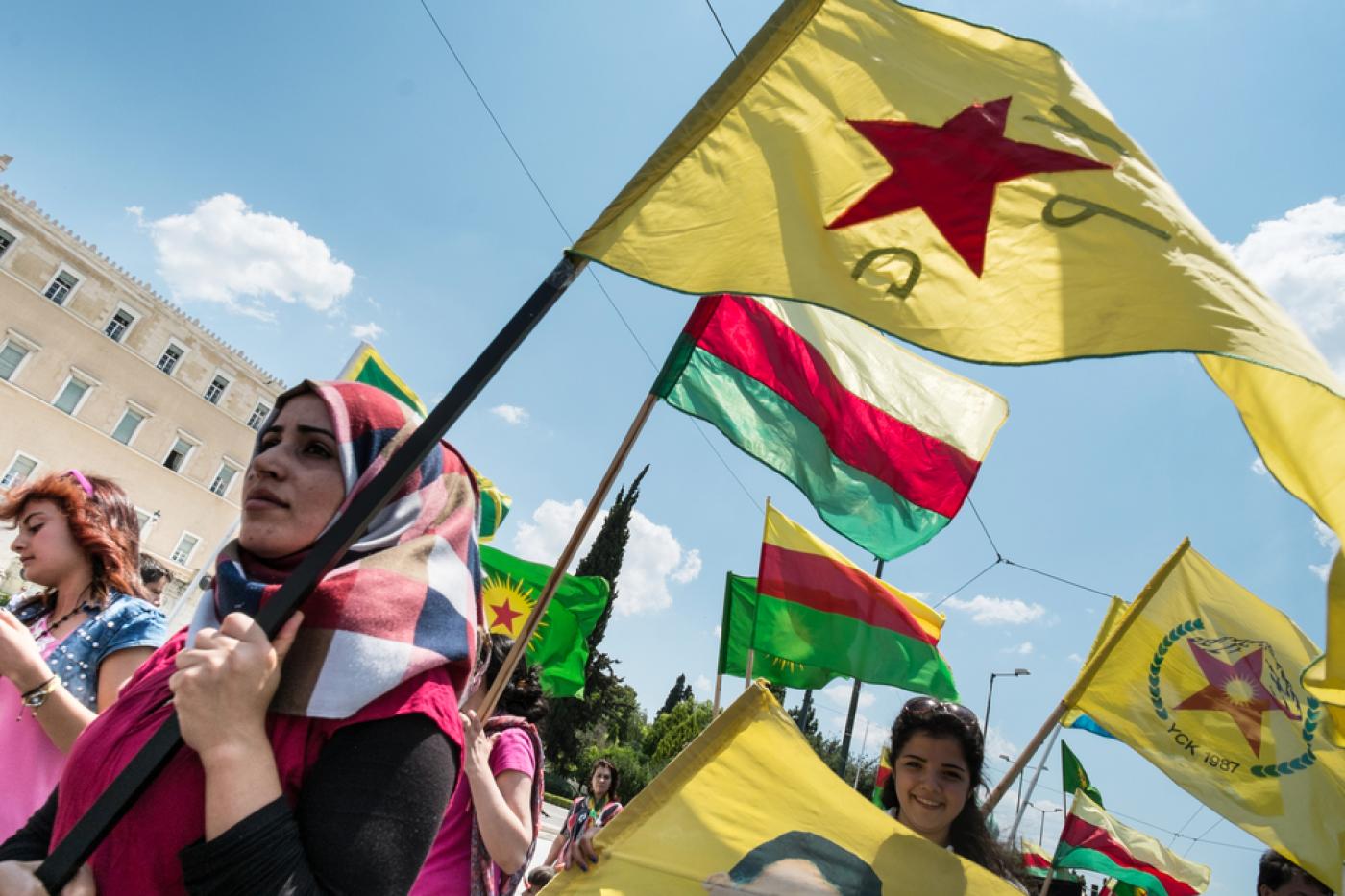by DAVE HOLMES

In an interview with SBS, celebrated Iranian Kurdish refugee Behrouz Boochani, detained in Australian offshore detention camps for six years, said that: “[Rojava] is the most progressive and democratic system in the history of the Middle East [so] this attack is not only an attack on Kurds, it is an attack on democracy and democratic values.” [1]
Rojava’s democracy is based on communes and is profound. Its feminism, in a region saturated with patriarchal practices, is remarkable. Its formation of a 25,000 strong women’s army is without precedent — anywhere, anytime. Its ethnic and religious pluralism, in a region where elites play on these differences to maintain their power, is also without precedent.
Slovenian Marxist philosopher Slavoj Zizek recently very accurately described Rojava as “an actually-existing and well-functioning utopia”.[2]
1. Turkey’s hatred of Kurds
Recently Turkish writer Asli Erdogan, jailed in 2016 for four months for criticising her presidential namesake and now in exile in Germany, gave an interview to the Italian newspaper La Repubblica.[3]
She said that “We Turks have been made to hate the Kurds since we go to primary school” and went on to explain that this sort of brainwashing is what leads most Turks to deny the reality of Kurdish oppression.
She said that all political forces in the Turkish parliament, including the CHP (the Kemalist bourgeois opposition party), are “terrorists”, except the HDP. “My country lives in an extreme nationalism.”
The Kurds in Turkey — 25% of the population — suffer a deep oppression and have done so since the republic was formed in 1923. Kurdish children can’t be taught in their own language in public schools. The Kurdish southeast is an internal colony, an occupied country. Elected Kurdish mayors are routinely sacked and replaced with Turkish administrators.
Furthermore, the Kurds are the spearhead of the fight for real democracy and women’s rights. Their struggle threatens the whole repressive, exploitative system of Turkish capitalism.
2. Why Turkey invaded
When you run a repressive prisonhouse for Kurds, it is intolerable to have a Kurdish-majority country of freedom and democracy just over the border. The “threat” was simply the example.
All the talk of Turkey’s legitimate “security concerns” is complete rubbish. Rojava never attacked Turkey across the border. And in any case, how could a small country of several million people threaten a country of 80 millions with the biggest NATO army after the United States?
3. The alliance with the US
Rojava’s alliance with the US has confused some people on the left. It was only ever a tactical military alliance of convenience.
The US needed ground forces to fight the Islamic State. By itself, bombing from the air was never going to do it. So US imperialism allied with a people’s revolution. But Washington never signed up to support commune-style democracy, feminism, and ethnic and religious pluralism.
Rojava obviously needed US airpower and supplies or it would have succumbed to IS long ago. Of course the US was extremely careful not to give the defence forces advanced heavy weaponry (anti-tank missiles, artillery and anti-aircraft missiles) which could have created serious problems for Turkey.
The price the Rojava defence forces paid over seven years was horrendous — 11,000 dead and 21,000 seriously wounded.
And finally Trump pulled the plug in the worst possible way. But when you strip away the Trump style, what it boils down to is that the US has turned back to their long-term imperialist alliance with Turkey.
LINKS for more
